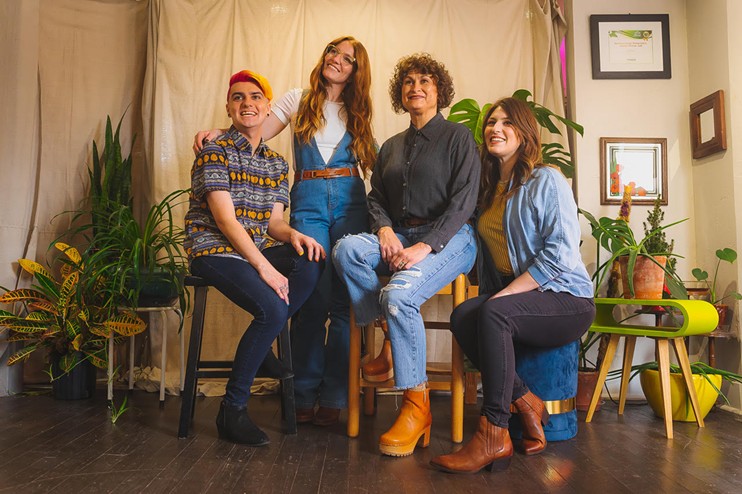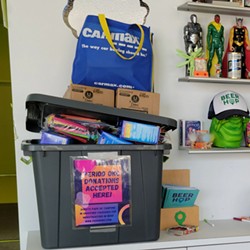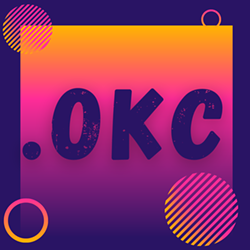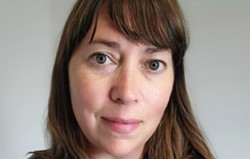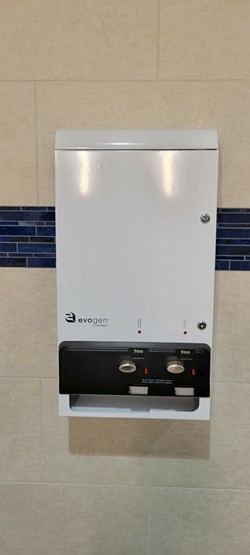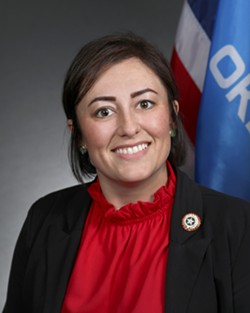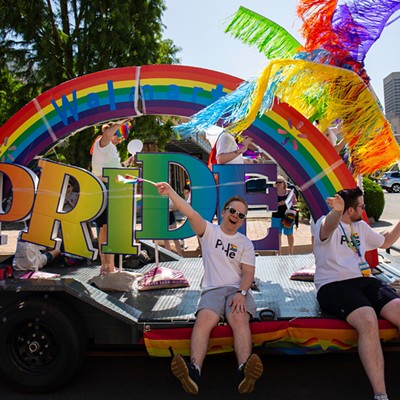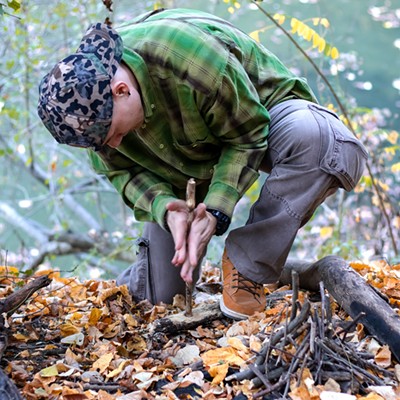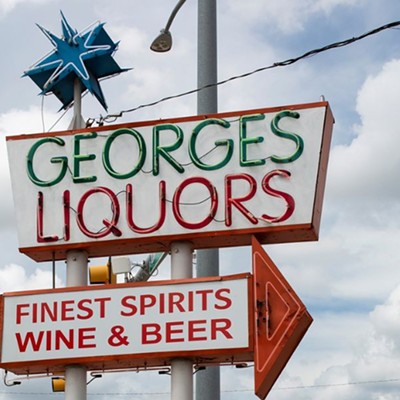Menstruation can come as a surprise, but for many, the reality of being unable to afford hygiene products becomes a regular obstacle.
“I was in seventh grade at school and I got my period in class. I went to the restroom and literally thought I was dying … Later, my best friend got a pad from her mother’s purse and showed me how to use it. I was very surprised. I thought I was dying,” Sahara Obaid said.
Then she lived with a dozen other women in a three-bedroom dwelling on Oklahoma City’s northwest side.
“I had been kicked out of my house and didn’t have a source of income, didn’t have a job, everything was very unstable. I got my period there and I remember we actually didn’t have running water. I went back to my mom’s house and begged her to let me in, drank some water.
“She had hit menopause – I scavenged through every old drawer, closet, everything I could find to get some pads because I had no money, I couldn’t afford it. I couldn’t do laundry. There were so many of us in the house, when I brought the pads back a bunch were used up pretty quick, because we just didn’t have any other means. It made me feel ashamed. It was very embarrassing. I felt alienated,” Obaid said.
Her story, while personal, is not necessarily unique.
Period OKC, founded and run by Jen Green and Linley Faye Smith, is a volunteer-driven nonprofit geared to collecting and providing tampons, pads, cups, and other menstrual supplies to those in need and raising awareness in the effort to eliminate period poverty and menstrual inequity in central Oklahoma.
“We were inspired to help people because of our common situation, dealing with the pandemic and seeing lots of people struggling to meet their daily needs,” Green said. “I became aware of period poverty in fall 2019, felt that was something manageable we could do to help other people. If they’re struggling to buy groceries, they’re probably unable to afford period products.”
Menstruation hygiene products are not covered under social safety net programs like SNAP and TANF, which means that inability to acquire items such as pads and tampons leads to missed work and school, she said.
“It also takes a mental health toll because it isolates them from society and causes embarrassment, stress, and anxiety. We’ve partnered with organizations to hold product drives – the Women’s Craft Beer Society, University of Oklahoma Women’s Health Advocacy, Obstetrics and Gynecology Interest Group at OU Medical Center, students at Southmoore High School, Phi Mu sorority at Oklahoma City University,” Green said.
Period OKC donated more than 40,000 products from March 2021 through the end of the year.
“Products should be free. They should be there with paper towels and toilet paper in every public restroom. Periods come unexpectedly, for any menstruator at any age or social scale. We dry our hands; pads, tampons, all menstrual products should be there to catch menstrual flow the same way. They’re five to 10 cents each when bought in bulk,” Green said. “Being comfortable talking about periods is so important. And educating non-menstruators. Period myths and stigma have created lots of confusion, what the needs are surrounding the menstrual process. Sex education should be improved. Be brave, discuss your period on the day-to-day with your friends and family like anything that affects your health. Buy extra menstrual products for your work or school bathroom. That also aids conversation. Move that conversation out of the bathroom.”
Period OKC has positively influenced businesses, aid organizations, and period poverty/menstrual equity activists throughout central Oklahoma, as well as civil servants as high as the state level.
Sustain Salon — owned and operated by Mazey Heydman — is a local business that accepts donations on behalf of Period OKC
“Because we’re a sustainable salon, we do everything we can to be sustainable including sustaining our community. Jen Green has been my client for years; she came to me and said she’s doing this nonprofit to help with period poverty and support our local community. Of course I said, ‘Yes, I can definitely help do that,’” Heydman said.
“One of my jobs is to help get in-kind donations,” said Kinsey Crocker, director of communications for OKC’s Homeless Alliance. “As you might imagine, working at an organization where we have lots of clients who are experiencing homelessness and have nothing, and clients moving into housing, we have lots of different types of supplies we’re always trying to collect. When I first came to [the Homeless Alliance], some of the items we just never seem to get enough donations for are period products and underwear, something that people just often don’t think to donate. Those are things shelters always need. … More people in the community have started donating those types of products. They didn’t know about it before, but thanks to Period OKC’s advocacy more people have started thinking about donating tampons and pads. Their efforts have really helped on those two levels, getting the products from them and raising awareness, thereby getting the products from the community at large.”
Crystal Toles serves as case manager/care coordinator for Jordan’s Crossing Drug and Alcohol Rehabilitation, affiliated with Red Rock Behavioral Health Services.
“Working in a residential facility with homeless women, it’s difficult to get menstrual products,” Toles said. “Once they start sobering up, their cycles start to come and become more natural. Now, we’re trying to hustle trying to find a way to get the products to us. It’s difficult to be able to get these items, a lot of the time we have to purchase them ourselves.
Toles said Period OKC called and told them of their program and then delivered donations.
Colin McPherson, a Southmoore High School student and activist, said: “One of the biggest issues I’ve seen based in our schools is the language we often have to use surrounding period poverty and period equity. Oftentimes we have to refer to a lot of period and menstrual products as feminine healthcare products when making announcements over the school intercom or talking about them in general.
“We’re focusing more on keeping male students comfortable rather than saying what they are – period and menstrual products. It leaves a lot of transgender and non-binary students out of the conversation because we talk about it being a female-only problem, when it’s so much more. There are so many more menstruators than we often think to include in the conversation.”
This isn’t a new conversation either.
“In 2019 I held a rally at the capitol to ask for menstrual products to be in all of our prisons, schools, and health departments. We got quite a bit of traction from that and a lot of interest from the public,” said Jennifer Mayo, founder of Equal Period Oklahoma.
She said many public school groups have started their own nonprofits to support products in their schools and prisoners are no longer provided a limited number of products. She also gave Period OKC credit as well as extending recognition to others.
“There have been several other groups like Project EmpowHer of Junior League of Oklahoma City and their partnership with Kotex, there are a lot of amazing organizations doing all this work without state funding or policy. I’ve met with the Department of Education and several of our lawmakers to see what can be done about our schools. Schools will say, ‘That’s too political for us,’ then lawmakers say, ‘That’s a school thing.’ So I’ve been bounced back and forth,” Mayo said.
She said she’s partnered with a national organization, period.org, and is attempting to get Oklahoma to join six other states in offering period products at no cost without access barriers.
“Obviously this is a bodily fluid and these products should be accessible at all times to these students. I want Oklahoma to be on the forefront of this, not in the bottom 10 as we are with some of our other health policies. I’m very happy to see there are multiple people pushing for that to happen,” Mayo said.
One of those people is state Sen. Jessica Garvin (R-Duncan), representing Oklahoma’s District 43. She will be proposing legislation next session to eliminate sales tax on menstrual products.
“This was actually a requested bill from some students with the Oklahoma State Medical Association. I got a phone call on their behalf from Matt Robison (OSMA director of government affairs) asking if I would be interested in writing this bill. I said, ‘Sign me up. Absolutely,’” Garvin said.
“When I researched pink tax, I found it’s not just on menstrual products. Shaving cream is a six percent markup for women versus men. It blew my mind … I think conservative women, or conservatives in general, have a reputation they don’t care about these issues. That’s just really not the case. I look forward to trying to eliminate some of the pink tax through sales tax elimination on needed products. There are so many people in this state currently affected or who will be affected, but it really affects every single family, everyone. To me it’s a commonsense policy,” she said.
“We have to normalize talking about these issues. They affect everyone. I think it’s going to take a conservative woman in our state to step up and bring these conversations to light so we don’t have the reputation of ‘Only Democrats care about these issues.’ We’ve got to get over that. Public policy should be something good for everyone, not just my voter base. Pink tax elimination is good for everyone. I’m here to do the right thing, right now,” Garvin said.
Period OKC accepts tax-deductible monetary donations and has an Amazon wishlist on our website for products to be purchased and shipped directly to them as well as a $5 monthly subscription service.
“We love what we do so much, but we wish we didn’t have to do it,” Green said.
To learn more visit Periodokc.com, follow them on Facebook at Period OKC, Instagram at @period_okc or Twitter @OkcPeriod.

